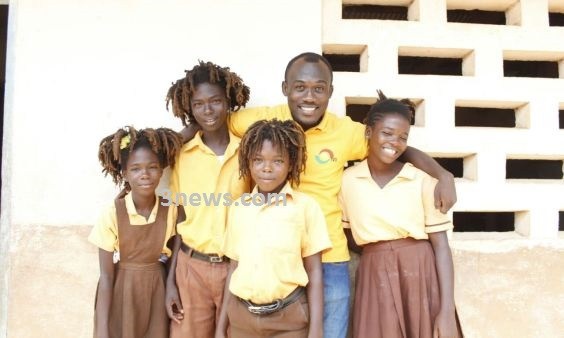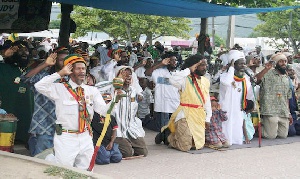A lecturer at the History Department of the University of Cape Coast, Professor De-Valera Botchway has demystified misconceptions associated with Rastafari and the use of marijuana. Rasta himself, he argued that the usage of the plant began with human kind and not Rastafari per se. The history lecturer would not take a stand on calls for marijuana usage to be decriminalized, but he was quick to point out that the plant has many beneficial purposes.
Rastafari is a religious movement that developed in Jamaica with its believers adhering to Emperor Haile Selassie of Ethiopia as a Messiah and justifying black people as the chosen ones to return to African homeland. Although the use of ‘Rastafarianism’ and ‘Rastafarian’ are common in describing the movement, adherents prefer ‘Rastafari’ ‘Ras’ or ‘Rasta’. ‘Ras’ means leader, and ‘tafari’ means to be feared implying that Rastafari means ‘A leader who is to be feared’.
Not everyone with dreadlocks ascribe to the teachings and philosophies of Rastafari because the hair style has been the choice of the many including the youth especially some celebrities in the entertainment and sports industries. While some dreadlocks are man-made, others are natural like that of the Mensah siblings.
The Mensah siblings are five and are from Afrangua in the Asebu Kwaman Kese District of the Central Region. Their dreadlocks come with traditional beliefs that deter them from cutting their hair. In late 2016 there were issues concerning refusal of certain government and mission schools to admit children who wear dreadlocks. But for the Mensah siblings, their dreadlocks have been a center of attraction for their friends and teachers.
“All my four younger siblings have dreadlocks and everyone in this school understands because they know it is by birth,” Martha Mensah told 3news.com.

Meanwhile, there has been an intense debate about decriminalization of marijuana in Ghana for some time now with some disagreeing that its decriminalization will open a floodgate for drug abuse.
According to a 2015 report by the international narcotics control board, Ghana was the highest in the use of marijuana although the country has fallen to a third position in Africa currently. Professor De-Valera Botchway traces the beginning of the usage of the plant to humanity and not Rastafari, making references to biblical stories in the Garden of Eden.
“Marijuana has been used in other societies without problem but in post-colonial Ghana it is considered an illegal substance. Why is marijuana illegal? It is basically someone’s interpretation of good and bad. I don’t understand why some people will be allowed the sale of alcohol and others are being arrested for possessing marijuana,” the professor argued. He says many non-Rastafari use the plant under disguise unlike rastas who he says are true to themselves. Comparing alcohol and marijuana, he recommends that the issue of legality and illegality of marihuana should be revisited.
The professor is not happy about the various misconceptions people level against Rastafari which include beliefs that Rastas do not know God and are not intellectuals, and therefore radical. He suggested that we should accept diversity in human kind and stop criticising others because they do not belong to one’s society.
General News of Tuesday, 28 February 2017
Source: 3news.com

















